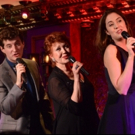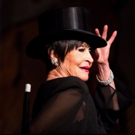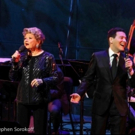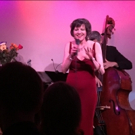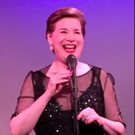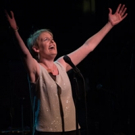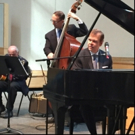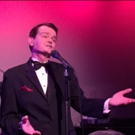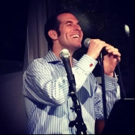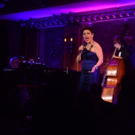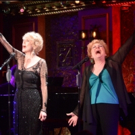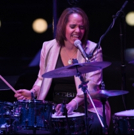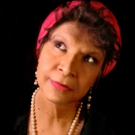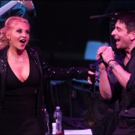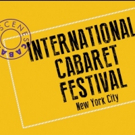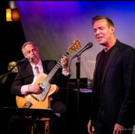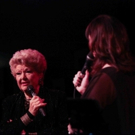Alix Cohen - Page 2

Alix Cohen’s writing began with poetry, segued into lyrics then took a commercial detour. She now authors pieces about culture/the arts including reviews and features. A diehard proponent of cabaret, she’s also a theater aficionado; a voting member of Drama Desk, of The Drama League and of The NY Press Club in addition to MAC. Currently Alix additionally writes for Cabaret Scenes, Theater Pizzazz, and Woman Around Town. Pieces have also been published by The New York Post, The National Observer’s Playground Magazine, and Pasadena Magazine. Alix is the recipient of six New York Press Club Awards.
April 22, 2016
Ninety percent of the way through her new 54 Below show, A Visit With Kander and Ebb, Donna McKechnie delivers the unquestioned highlight of this show, “I Walk Away” (The Visit), wherein the character Claire Zachanassian ruefully explains how she accrued her fortune through the deaths of successive husbands. Phrasing is superb, vocal confident, acting strong. Unfortunately, while the show's finale “Yes!” (70, Girls, 70) is appealing for vivacity and notable lack of pretense, nothing else comes close to this satisfying parenthesis.
April 21, 2016
When Tuesday night the formidable Chita Rivera opens her debut Cafe Carlyle show, An Evening of My Favorite Songs, with "I Won't Dance" (Jerome Kern/Dorothy Fields/Jimmy McHugh), it's like watching a thoroughbred nose the racing gate. There's too little space on the small stage to do much more than shimmy, twirl, and display Bob Fosse-like arm moves; the performer exudes an urge to cut loose. At the ripe age of we-all-aspire-to-that-kind-of-unquenchable-joie-de-vivre, she shoots off sparks.
April 16, 2016
I hear music, mighty fine music . . . Host Michael Feinstein sings with pristine bass accompaniment, as Musical Director Tedd Firth's Big Band filters in musician by musician. The sweetest sounds I ever heard . . . he continues as a light saxophone joins syncopated rhythm. Then whomp! All 17 players swing. Rarely have I heard sound design so perfectly balanced, appropriately favoring vocals. Feinstein remains smooth and easy riding the wave. 'You may wonder about the role of jazz in popular song . . . ' our host begins at the start of Jazz at Lincoln Center's first of three segments of the Jazz & Popular Song Series in the Appel Room. At a time when popular songs came and went with alacrity, jazz artists meeting for improvisational jam sessions needed pieces they all knew. Thus jazz mined popular music creating an intersection of the two art forms. Aided and abetted by four very different featured guests, Feinstein illuminates by example, not narrative.
April 15, 2016
I didn't catch Rosemary Loar's original 2006 presentation of 'Quando Swing,' but I can't imagine it performed with more muscular honesty than it was Wednesday night at the Metropolitan Room in the latest monthly installment of Producer Stephen Hanks' 'New York Cabaret's Greatest Hits' series. We've come to expect lucid, intriguing shows from the vocalist, but engagement level on this occasion felt almost cathartic. Energy was full tilt, lyric communication authentic.
April 11, 2016
Once again, beginning Wednesday evening at 7 pm in Jazz at Lincoln Center's spectacular Appel Room, Michael Feinstein shares his taste, knowledge, and infectious enthusiasm with concerts of diverse music and vocals. This year's concert schedule with The Tedd Firth Big Band and special guests includes The Great Jazz Standards, A Right To Sing the Blues, and Sing Me a Swing Song. In a recent interview with BroadwayWorld.com, Feinstein says he thinks the shows are popular not only because they reflect imagination and variety, but also because “they're so clearly spontaneous at a time when music is often pre-canned.” Each evening different vocalists join our host presenting his or her singular style.
April 5, 2016
Raising the bar ever higher, Celia Berk (who in the past year has won “Best Debut” Awards from BroadwayWorld and MAC and received a Bistro Award) celebrated the release of her new CD Manhattan Serenade with the first of four shows at The Metropolitan Room on Sunday night (others are April 10, 17, and 24). Her dream band, helmed by MD/arranger/pianist Alex Rybeck, featured Jered Egan on bass, Dan Gross on percussion, and Dan Willis with his invaluable woodwinds.
April 1, 2016
There are audible sighs of pleasurable recognition from the audience at the Stanley H. Kaplan Penthouse at Lincoln Center (on March 30) when Liz Callaway's band plays opening bars from "The Story Goes On" (Baby)." Songwriting partners Richard Maltby & David Shire have been "in" Liz Callaway's life since she was a teenager with exposure to her parents' extensive Barbra Streisand collection (the icon sang Maltby/Shire) and a recording of Starting Here, Starting Now. Her first New York cabaret presentation (at The Duplex) opened with "Just Across the River" from the revue. That show lead to an audition for a piece directed by Richard Maltby Jr. which eventually paved the way for Callaway's role in the collaborators' musical Baby. The young actress thought she was helping out writers she admired by letting them hear new material out loud, but, in fact, was auditioning. (This is actually not difficult to believe.) And the rest is history.
March 29, 2016
Johnny Mercer (1909-1976) wrote the lyrics to more than 1500 songs, including dozens upon dozens for movies and Broadway shows. He received 19 Academy Award nominations, and won four Best Original Song Oscars. Mercer was also a composer, a vocalist and the foresighted founder of Capitol Records. To appreciate The American Songbook, one must be familiar with this multifaceted artist. In a revue presented last Thursday to Sunday at the Studio Theater on West 42nd Street, Accentuate The Positive staged its title song as an evangelical meeting. You've got to ac-cen-tu-ate the positive/E-li-mi-nate the negative/Latch on to the affirmative/Don't mess with Mister In-Between…(Harold Arlen/Johnny Mercer) Stephen Belida played a preacher while around him Lynne Halliday, Tom Hafner, Madison Stratton, Lou Steele, and Carey Van Driest chanted, sung, snapped, clapped, circled, and raised their arms in Hallelujah fashion. An auspicious beginning.
March 17, 2016
Every time I attend something in jazz pianist Ronny Whyte's estimable weekly series at the welcoming, modern Saint Peter's Church (619 Lexington Avenue at 54th Street), I'm glad I came. The place is airy, peaceful, and sunny with spacious pew and tiered seating. Acoustics are splendid. The audience is respectful. And they have Billy Strayhorn's piano. Yesterday's easy-going hour featured Alex Leonard on piano and vocals (one forgets how fine a vocalist he is), David Kingsnorth on bass, and veteran Al Gafa on guitar.
March 16, 2016
Veteran cabaret performer Richard Holbrook peppers his show, 'Sings Richard Rodgers With a Lot of Hart' (at the Metropolitan Room this past Monday night) with facts about Rodgers' life and career. It's obvious the performer feels strongly about his subject's work. Unfortunately, the same energy, volume, and mood predominate throughout. Arrangements are highly similar. Holbrook's musical self consciousness overrides lyric content. His show presents spirit and heart, but inadequate direction.
March 7, 2016
Bar Thalia, a narrow, uber-casual bar/café adjacent to the Upper West Side arts hub Symphony Space, has become the musical pied-à-terre of vocalist Marcus Goldhaber. Each first Sunday of the month, the artist presents two loosey-goosey acoustic sets with a guest singer and guitarist. The past Sunday's show featured vocalist Tessa Souter with Tony Romano on guitar.
March 5, 2016
In her new show, Café Society at Feinstein's/54 Below, Christine Andreas doesn't so much sing “Puttin' On the Ritz” (Irving Berlin) as personify it, channeling the attitude and era in which it was conceived. With just a tad of hip action, tipping shoulders, and an elongated ssss, the artist shares a really good time. “So, where are we going after the show . . . to Harlem's Savoy or The Copa? (The Copacabana) . . . ” This evening is about the late 1920s to the early '60s “an ongoing party of glamour and excess . . . when everybody was listening to the same music.”
March 4, 2016
In a follow-up to their 2013 presentation Sin Twisters, on Wednesday night at Feinstein's/54 Below, show biz veterans Anita Gillette and Penny Fuller offered stories from the Broadway trenches, songs from their musical history, and affectionate one-upmanship, again deftly directed by Barry Kleinbort.
February 29, 2016
Multiple Grammy-winning drummer, composer, producer, and bandleader Terri Lyne Carrington and her group play dense, intense jazz with elusive melody. Ornette Coleman's 'Chronology' arrives like a wall of sound. An adamant and up-tempo 'Body and Soul' (Edward Heyman/Robert Sour/Frank Eyton/Johnny Green) is almost tribal, at odds with familiar mood and lyric intention. Towards the end of Saturday night's show--Mosaic Project: Love and Soul--in the American Songbook Series at Lincoln Center's Appel Room, Ms. Carrington executes a lengthy solo spotlighting her extraordinary musicianship, but instrumental arrangements escape me.
February 25, 2016
Some years ago when Tony Award-winning actress (for For Colored Girls Who Have Considered Suicide When the Rainbow is Enuf (Ntozake Shange) and playwright Trezanna Beverley's voice coach suggested she listen to Mabel Mercer, the artist had not heard of the nightclub and cabaret singing icon. A trip to the Schomburg Center for Research in Black Culture (Harlem) began a protracted period of research into Mercer's life and work. Beverley found she not only respected and admired her subject, but felt a kinship both in spirit and color. Inspired, she decided to write her own theatrical script about Mercer's life and art with the goal of playing her in a one-woman show. Her dream has been realized with Mabel Madness, a play with music that opened this week at Urban Stages and runs until March 20.
February 23, 2016
In their continuing effort to broaden its musical scope, Lincoln Center's American Songbook series at The Appel Room Saturday night presented two-time Tony Award nominee Andy Karl (Rocky, On the Twentieth Century) and his Tony-Award nominee wife Orfeh (Legally Blonde) performing together in concert for the first time.
February 20, 2016
The brainchild of Metropolitan Room managing partner Bernie Furshpan, his General Manager Joseph Macchia, and Cabaret Scenes Magazine Publisher Peter Leavy, New York's first International Cabaret Festival (February 17-21) debuted Wednesday night at the Met Room with performances and inductions into the newly established Cabaret Hall of Fame (an actual location for Hall and its memorabilia to be determined at a later date). Clubs hosting this year's festival include The Metropolitan Room, Don't Tell Mama, The Duplex, Feinstein's/54 Below, Iridium, Joe's Pub, and Stage 72 (formerly The Triad).
February 17, 2016
Hosted by famously deadpan Julie Halston (You Can't Take It With You), the melange of actors presented in Monday night's comedy show at Feinstein's/54 Below drove home the fact that humor is simply not universal. Additionally, lack of continuity made it seem as if artists chose material no one reviewed.
February 16, 2016
When vocalist Todd Murray discovered several of the musicians for his excellent show Croon were unavailable for their scheduled Valentine's Day appearance last Sunday afternoon at the Metropolitan Room, he asked Sean Harkness (the guitarist in the show) to join him for a two-hander. The fortuitous accident yielded a terrific presentation of romantic material from sentimental to ardent, a pared down sharing of unadulterated heart and high musical craft that deserves wider audience. “It's our goal to put you in the mood,” Murray tells us. They do.
February 12, 2016
Last Sunday, New York's Birdland Jazz Club welcomed the third and fourth shows in Ann Hampton Callaway's This is Cabaret series that is subsequently aired on National Public Radio (check local listings for dates and times). As increased exposure is vital to the health of the art form, one can only applaud its emergence. Callaway's special guests (one in each hour segment) were jazz performer Kurt Elling and cabaret Goddess Marilyn Maye.
Videos


